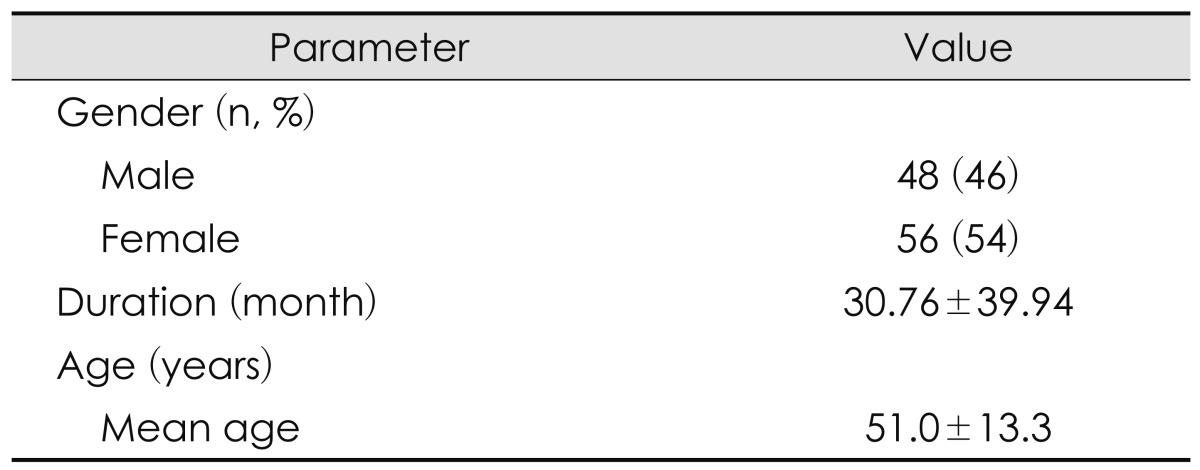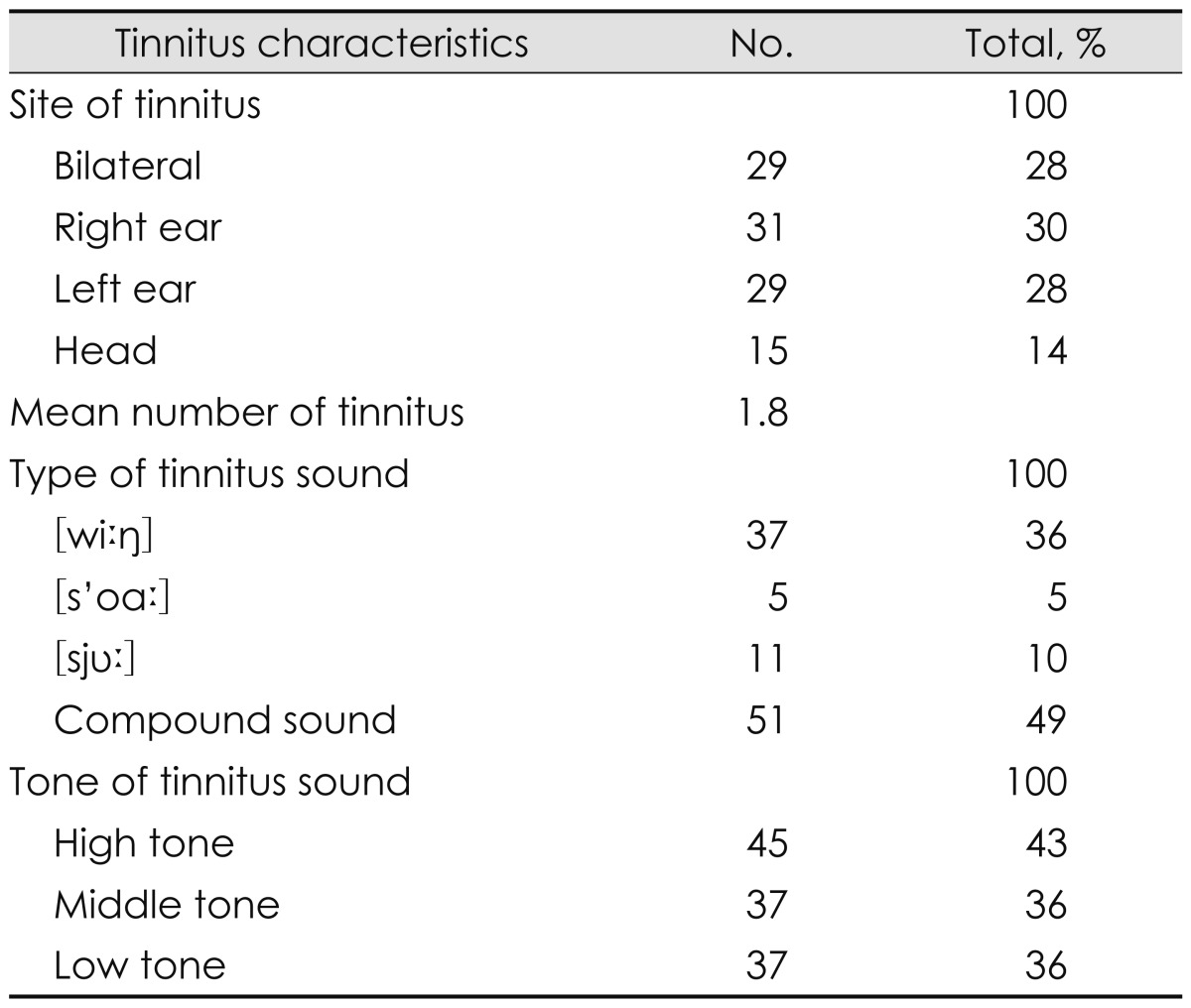Evaluation of anxiety and depressive levels in tinnitus patients.
Korean journal of audiology
Pub Date : 2013-09-01
Epub Date: 2013-09-24
DOI:10.7874/kja.2013.17.2.83
引用次数: 35
Abstract
Background and Objectives The aims of this study were to evaluate the relationship between tinnitus and the level of anxiety and depression experienced by subjective tinnitus patients, and to determine the effect of the level of anxiety and depression to the results of tinnitus treatment. Subjects and Methods A total of 104 patients were included in this study. All the patients conducted Tinnitus Handicap Inventory (THI), Beck Depression Inventory (BDI), State Trait Anxiety Inventory 1, 2 (STAI 1, 2) to evaluate their psychometric properties. The subjective patterns of tinnitus before and after treatment were assessed through questionnaires. Results Significant correlation between THI scores and BDI, STAI 1, 2 scores were observed in the moderate and severe tinnitus group. The patients were classified into two groups depending on their THI scores, and also classified into two groups according to BDI, STAI 1, 2 results. Analysis of differences after treatment indicated significantly improved VAS scores after treatment in all groups. Conclusions The subjective level of tinnitus is significantly related with depression and anxiety symptoms when inconvenience caused by tinnitus was moderate or over. Assessments on tinnitus after treatment appeared to have improved significantly regardless of the severity of tinnitus, level of depression or anxiety disorder.



耳鸣患者焦虑和抑郁水平的评估。
背景与目的:本研究旨在评价主观性耳鸣患者耳鸣与焦虑、抑郁水平的关系,并探讨焦虑、抑郁水平对耳鸣治疗效果的影响。研究对象和方法:共纳入104例患者。所有患者均采用耳鸣障碍量表(THI)、贝克抑郁量表(BDI)、状态-特质焦虑量表1,2 (STAI 1,2)评估其心理测量特征。通过问卷调查评估治疗前后耳鸣的主观模式。结果:中重度耳鸣组THI评分与BDI、STAI 1、2评分有显著相关性。根据THI评分将患者分为两组,根据BDI、STAI 1、2结果将患者分为两组。治疗后差异分析显示,各组治疗后VAS评分均显著提高。结论:中重度耳鸣引起的不便时,耳鸣主观水平与抑郁、焦虑症状显著相关。无论耳鸣的严重程度、抑郁程度或焦虑症程度如何,治疗后耳鸣的评估似乎都有了显著改善。
本文章由计算机程序翻译,如有差异,请以英文原文为准。
求助全文
约1分钟内获得全文
求助全文

 求助内容:
求助内容: 应助结果提醒方式:
应助结果提醒方式:


